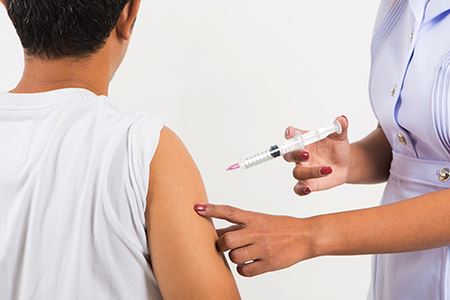Tetanus, also known as lockjaw, is a potentially life-threatening bacterial infection caused by Clostridium tetani. The bacteria commonly reside in soil and can enter the body through wounds, cuts, or puncture injuries. Tetanus can lead to severe muscle stiffness, painful spasms, and even death if left untreated. To prevent tetanus, individuals receive a tetanus shot, also known as a tetanus vaccine. But how long does a tetanus shot’s protection last, and when should you get a booster? In this article, we’ll explore how long does a tetanus shot last of immunity provided by tetanus vaccinations and the importance of timely boosters.
Tetanus Shot Overview:
The tetanus vaccine is typically administered as part of a combination vaccine known as the Tdap or DTaP vaccine. Tdap stands for tetanus, diphtheria, and pertussis, while DTaP is used for children and provides protection against the same diseases. Tetanus toxoid, an inactivated form of the tetanus toxin, is the active component in the vaccine that stimulates the body’s immune system to produce antibodies.
Duration of Tetanus Shot Protection:
The duration of protection provided by a tetanus shot depends on several factors, including the type of vaccine received and the individual’s vaccination history. Here are some key points to consider:
Primary Vaccination Series:
After completing the primary vaccination series, which typically consists of three doses of the DTaP or Tdap vaccine, individuals are considered to have strong immunity against tetanus.
Booster Shots:
To maintain immunity, booster shots are recommended at specific intervals:
A booster dose of Tdap is recommended for adolescents at age 11 or 12.
A booster dose of Tdap or Td (tetanus and diphtheria) vaccine is recommended every 10 years for adults to maintain protection against tetanus.
Wound Management:
If an individual sustains a significant wound or injury, particularly one that is dirty or contaminated, a booster dose of tetanus vaccine may be administered if it has been more than five years since the last dose.
Pregnancy:
Pregnant women are often given a dose of Tdap during each pregnancy to protect both the mother and the newborn from pertussis (whooping cough). This dose also serves as a tetanus booster if needed.
Importance of Boosters:
Boosters are essential because tetanus spores can be found in various environments, especially soil, dust, and manure. Even minor injuries like cuts or puncture wounds can potentially introduce these spores into the body, leading to a tetanus infection if immunity has waned. The purpose of booster shots is to ensure that the body continues to produce sufficient antibodies to neutralize the tetanus toxin.
Tetanus Shot After an Injury:
If you sustain a wound or injury that is dirty or contaminated, it’s crucial to seek medical attention promptly. Depending on your vaccination history and the nature of the wound, a healthcare provider may recommend:
Tetanus shot: If it has been more than five years since your last tetanus vaccine.
Tetanus immune globulin (TIG): This is a medication that provides immediate, temporary protection against tetanus and is sometimes administered in combination with a tetanus shot for high-risk wounds.
Conclusion:
The duration of protection provided by a tetanus shot varies depending on an individual’s vaccination history, the type of vaccine received, and the presence of any high-risk wounds or injuries. It’s essential to keep track of your vaccination records and receive booster shots as recommended by healthcare professionals to ensure continuous immunity against tetanus. While tetanus is relatively rare in well-vaccinated populations, it is a serious and potentially fatal disease, so maintaining up-to-date vaccinations is a prudent measure for overall health and safety. If you have questions or concerns about tetanus vaccination, consult with your healthcare provider for personalized guidance.


